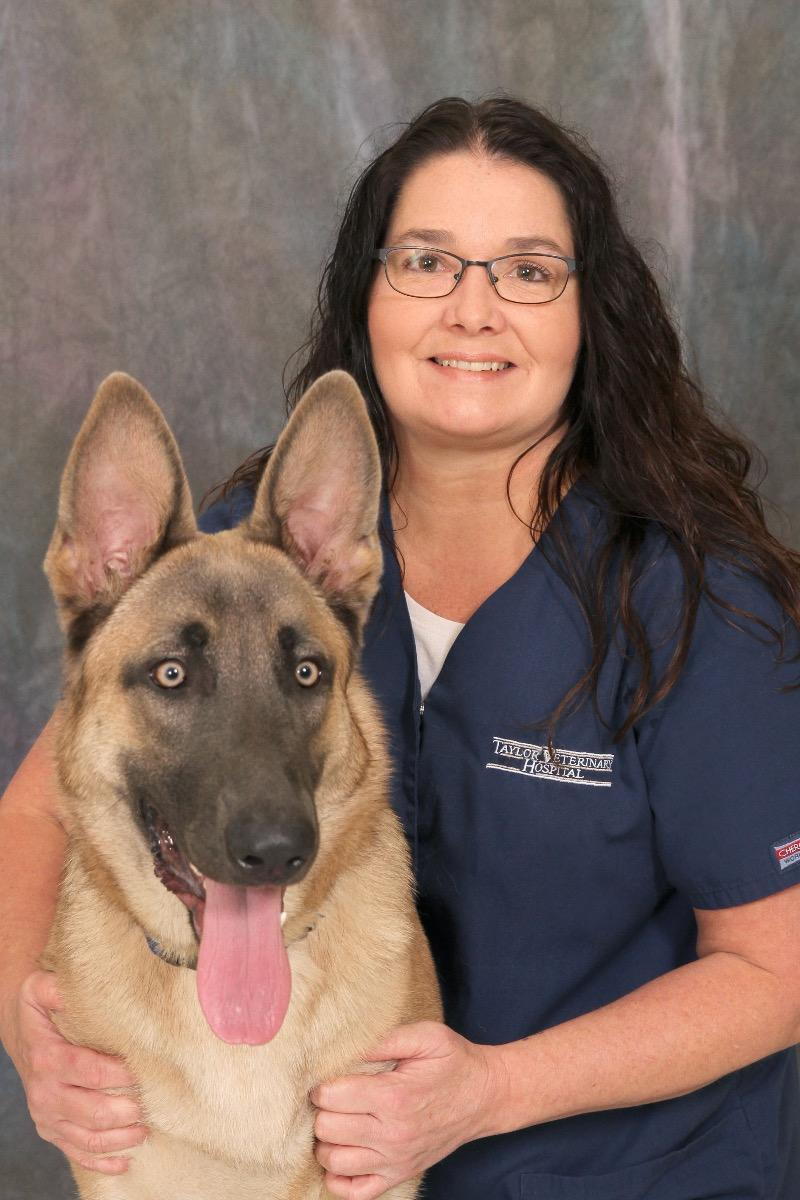Teaching Topic: Gastric Dilatation Volvulus (GDV)

- posted: Mar. 27, 2018
Gastric dilatation volvulus (aka GDV, torsion, bloat, flipped stomach) occurs when a pets stomach fills with gas, fluid or food and then flips over. Flipping means that the entry (esophagus) and the exit (duodenum/small intestine) to the stomach is blocked. There are bacteria in the stomach that continue making gas and will cause the stomach to quickly fill - you can often times see the belly “bloat”. This usually occurs within hours. Pets will start to vomit or dry heave continually trying to relieve the pressure and act very lethargic. If this is noted, call your vet immediately.
Any animal can have GDV occur, but it is most common in large, deep-chested dogs, such as Rhonda's dog pictured above who is a German Shepard, also Great Danes, Boxers, Akitas, Weimaraners, Saint Bernards, Doberman pinscher, Irish Setters, Newfoundlands, Standard Poodles, and Labradors. There is a lot of research regarding what causes GDV to occur. The results from this research are mixed. The one thing that is proven, if GDV has occurred in a family member, then it is more likely to occur.
Ways to prevent GDV are heavily debated, but below are a list of strategies that will help.
- Feed smaller meals. Ex - Breakfast and supper vs. only feeding once daily
- No strenuous exercise 30 minutes after eating or drinking a large amount.
- Prophylactic gastropexy
What is a prophylactic gastropexy you ask? It is a preventative surgery that helps decrease the risk of GDV. It involves suturing the stomach to the body wall to decrease the chance of it being able to flip. This can be performed at any time, but it is a great time to do it when at risk puppies are in for their spay or neuter.
As always, feel free to call with any questions, (319) 277-1883.


